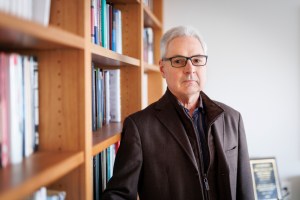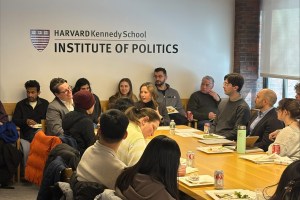Campus & Community
-

Of different faiths, but connected by belief
Community members gather to explore identity, spiritual experience at first ‘Across This Table’ interfaith dinner
-

Batman returns — to accept his Pudding Pot
Michael Keaton feted as Hasty Pudding’s Man of the Year, 30 years after first invite
-
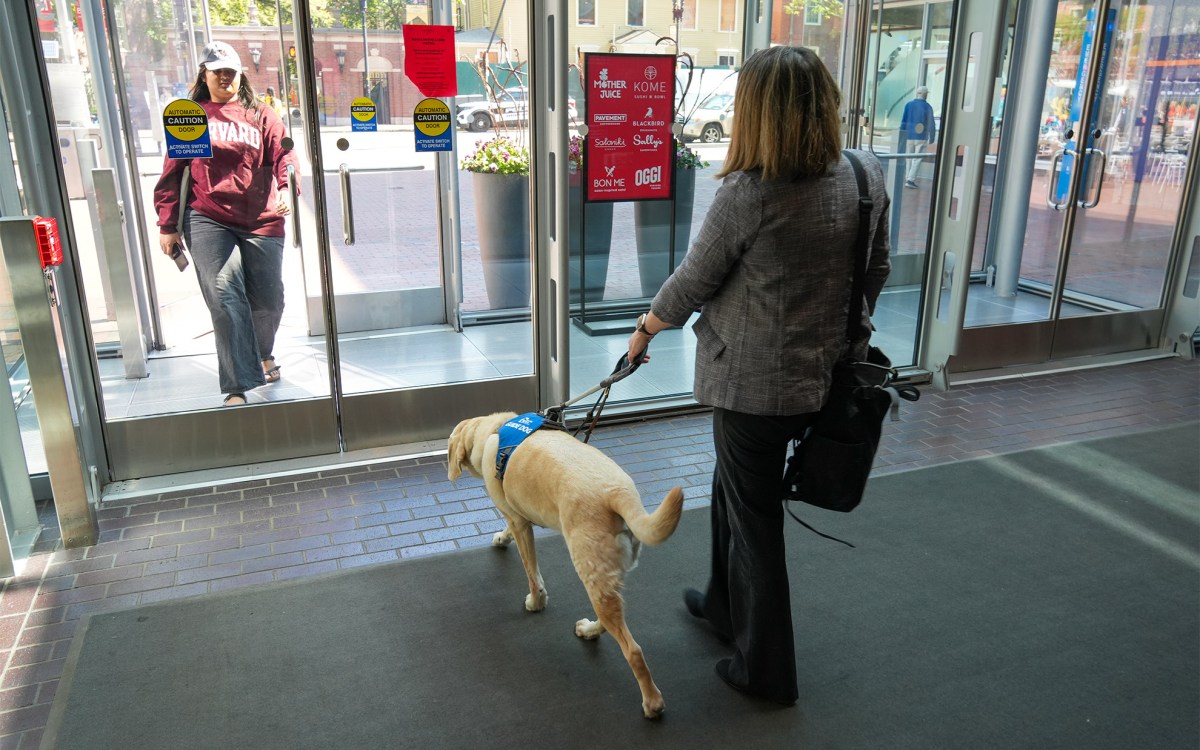
Funding innovative approaches to belonging
Supported by grants from the Culture Lab, four projects aim to strengthen belonging through listening, discussion, art, and representation
-

Class of 2001 elects Alejandra Casillas as chief marshal of alumni
Physician and health equity leader to serve in time-honored role
-

A second shot at Olympic glory
Battle-tested current, former students return to Winter Games
-

Journey on ice and water
Former figure skating star Caitlyn Kukulowicz still hits the triple lutz but has found new place at boathouse
-
Eric Beerbohm appointed director of Graduate Fellowships
Edmond J. Safra Foundation Center for Ethics recently announced the appointment of Eric Beerbohm as director of the Edmond J. Safra Graduate Fellowships in Ethics.
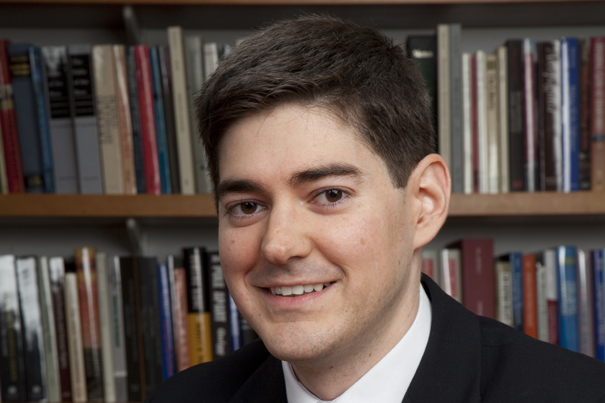
-
New Stroke Tool May Predict Early Recurrence
Researchers have developed a tool to predict whether a patient will suffer a second stroke within 90 days of a first stroke.
-
A Sultry World Is Found Orbiting a Distant Star
Astronomers said Wednesday that they had discovered a planet composed mostly of water.
-
New director of I Tatti
Harvard Provost Steven E. Hyman announced Dec. 16 that Lino Pertile will become director of the Harvard University Center for Italian Renaissance Studies at Villa I Tatti in Florence, Italy, beginning next summer.
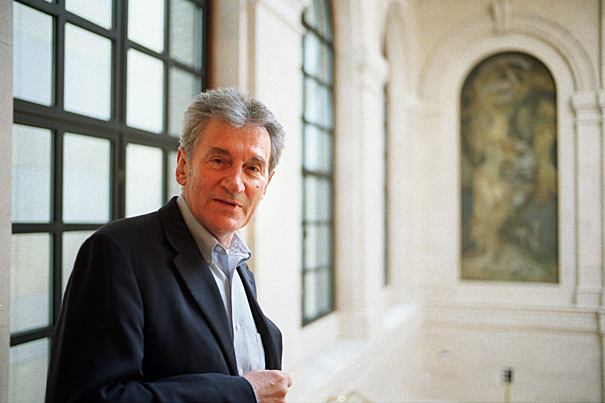
-
Florida A&M, Harvard study link between lead and hypertension
A machine that looks as if it can emit a laser beam may be key to determining why many adults in Gadsden County have high-blood pressure.
-
Survey Finds Travelers Taking Health Precautions
More than half of adult travelers say they are taking more precautions against flu this year compared to last year, according to a poll conducted by the Harvard School of Public Health.
-
Houghton to conclude Corporation service
James R. Houghton, the longest-serving member of the Harvard Corporation and chair of the University’s 2006-07 presidential search, today announced his plans to step down at the end of the 2009-10 academic year, after 15 years on the Corporation.
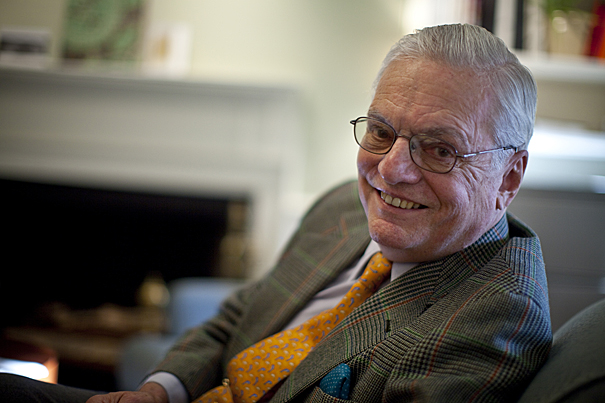
-
Harvard gets $500k gift for history museum
The Harvard Museum of Natural History has received its largest donation since its founding in 1998. The $500,000 commitment from a Harvard University alumnus will help fund a permanent multi-media exhibition…
-
Designated driver turns 21
The designated driver campaign is marking a milestone birthday: It’s turning 21. Born of tragedy, the effort transformed attitudes toward drinking and driving. And it did so using a novel tactic…
-
Midyear Commencement commences
A midyear graduate celebration took place on Dec. 10 at the Radcliffe Gymnasium, to honor Harvard College students who graduated outside of the schedule for the academic year.
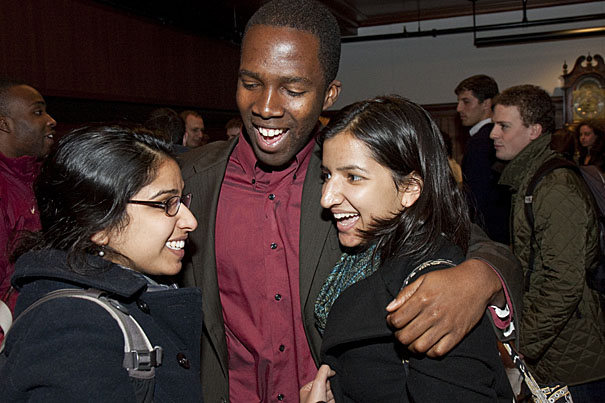
-
Coleman named chief diversity officer
Lisa M. Coleman has been named chief diversity officer for Harvard University. Coleman, who has served in a similar capacity at Tufts University for the past three years, also will hold the title of special assistant to the president.
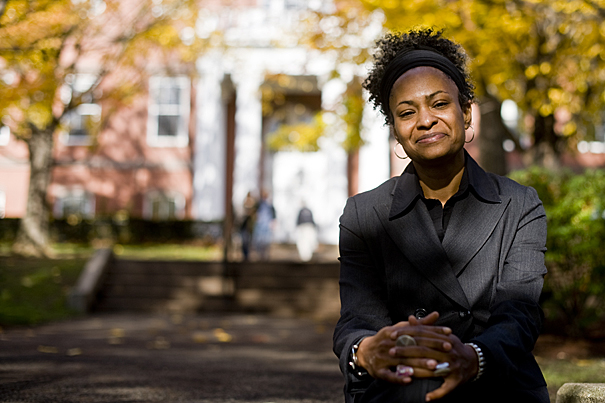
-
Faculty Council meeting held Dec. 9
Faculty Council holds meeting Dec. 9.
-
Q&A on Harvard’s Allston plan
In a letter to the Allston community sent earlier today, Harvard President Drew Faust outlined the University’s path forward for its presence in Allston. The Gazette sat down with Executive Vice President Katherine Lapp to learn more about what’s on the drawing boards.
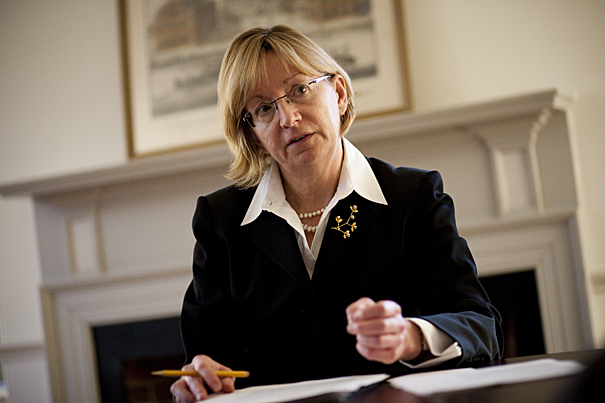
-
Markley nabs her third Ivy Player of the Week award this season
Emma Markley ’11 of the Harvard women’s basketball team was named Ivy Player of the Week on Dec. 7.
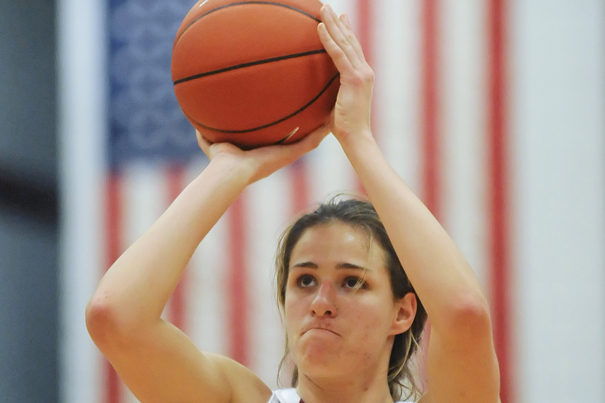
-
Harvard racks up postseason honors
The Crimson dominated the postseason awards with four players named to the New England Football Writers’ Football Championship Subdivision (FCS) All-Star Team and 19 members of the team named All-Ivy League.
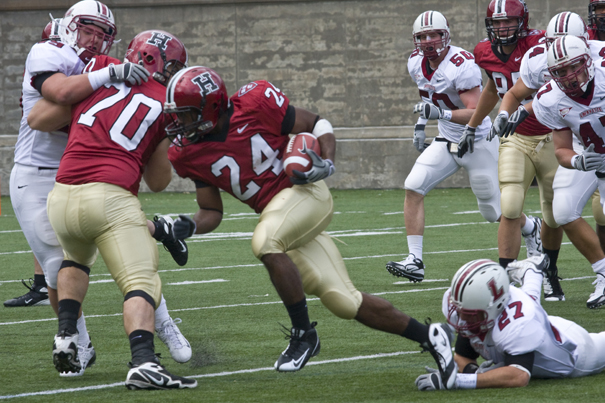
-
Crimson goaltender Kessler wins second-consecutive ECAC honor
Goaltender Christina Kessler ’10 of the Harvard women’s hockey team was named ECAC Goaltender of the week on Monday (Dec. 8) after shutting out No. 2 Minnesota twice this past weekend. It is her second-consecutive honor this season and third overall.
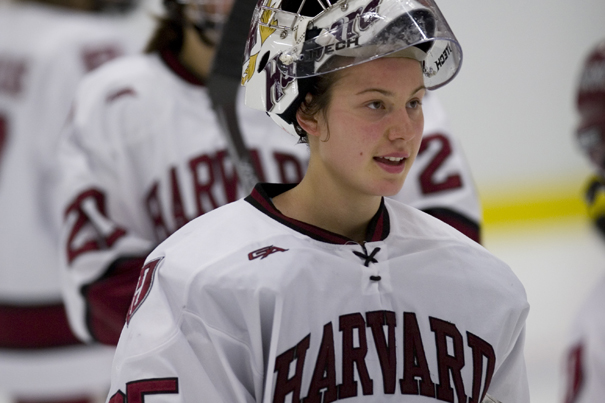
-
Lin named Ivy Player of the Week
A 30-point, nine-rebound effort by co-captain Jeremy Lin ’10 may not have been enough to help the Harvard men’s basketball team defeat the University of Connecticut (UConn) in their 79-73 loss to the No. 13-ranked Huskies on Dec. 6, but it did earn the senior guard his second Ivy Player of the Week award this season.
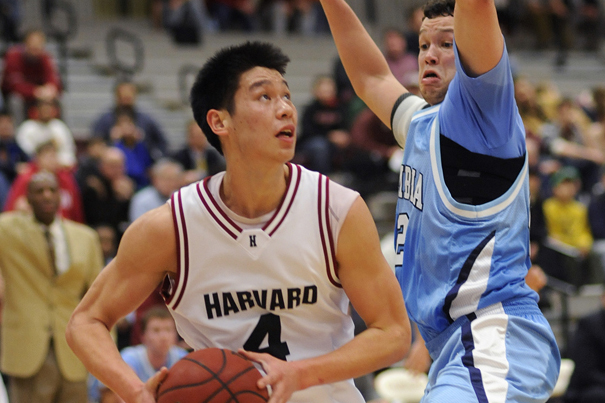
-
Exercise Can Benefit Men With Prostate Cancer (ABC News)
As little as 15 minutes of physical activity a day can substantially cut death rates in men with prostate cancer, new research hints.
-
Digging Veritas 2009 – The Find
While digging up the Old Yard, Harvard students may have turned a corner in rediscovering the 17th century Indian College.
-
Freshmen to receive H1N1 vaccine
Harvard University Health Services (UHS) has received a new shipment of H1N1 vaccine and will begin distributing it to College freshmen at a clinic in Annenberg Hall on Wednesday (Dec. 9). UHS also will offer the vaccine to UHS patients between the ages of 18 of 24 who have high-risk health conditions.

-
In the footsteps of Du Bois
Eight receive W.E.B. Du Bois Medals for aiding African-American culture, including Charlayne Hunter-Gault, Hugh M. “Brother Blue” Hill, Vernon Jordan, Daniel and Joanna S. Rose, Shirley M. Tilghman, Bob Herbert, and Frank H. Pearl.
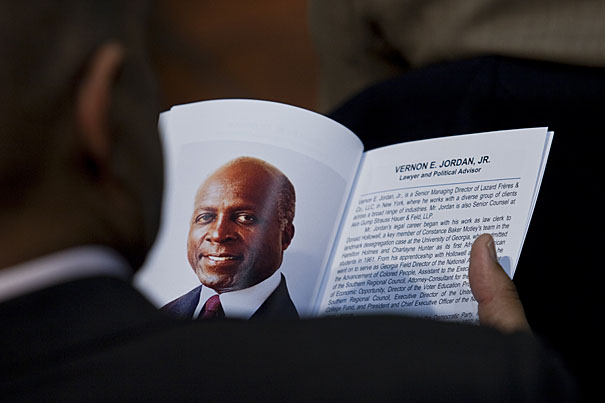
-
Weiss to guide Library Implementation Work Group
Deborah Jackson Weiss has been named senior project director for the Library Implementation Work Group. In that role, she will guide the panel putting in place the recommendations made last month by the Library Task Force.
-
Risks: Leaving ‘Stroke Belt’ but Not the Dangers
Researchers at the Harvard School of Public Health who analyzed stroke deaths in the United States found that people who were born in the Southeast and continued to live there as adults were 34 percent more likely than other Americans to die of a stroke
-
Happiness is…
Which would make you happier: winning the lottery, or losing the ability to walk? It may seem like a no-brainer, but Daniel Gilbert, a psychology professor at Harvard University, says the answer may surprise you.
-
Harvard promotes area businesses this holiday season
With sizzling hamburger sliders coming off the grill, steaming hot chocolate going into eager hands, and harmonious a cappella voices filling the background, organizers on Thursday (Dec. 3) launched a “Think Harvard Square” campaign to promote local businesses this holiday shopping season.
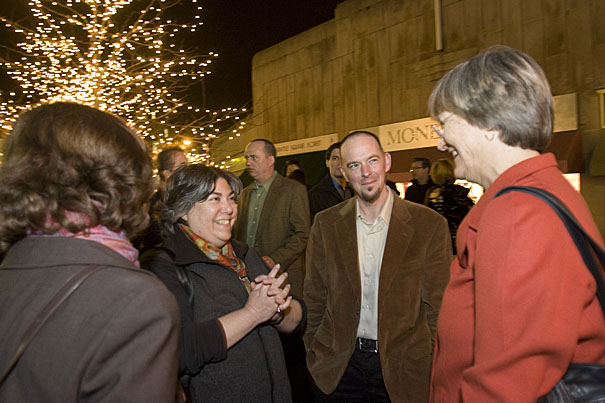
-
Harvard vs. Maryland – Men’s Soccer
A silent stadium opens and closes the 2009 season-ender for Harvard Men’s Soccer team.
-
In poll, majority of young adults disapproves of US troop buildup in Afghanistan
Two-thirds of young adults oppose sending more US troops to Afghanistan, according to a national poll released yesterday by the Harvard University Institute of Politics that suggests fissures in a key demographic that helped President Obama capture the White House.
-
Journey to D.C.
Harvard Kennedy School graduate Sam Sanders ’09 writes about his experience as a public policy student and the road that led him to National Public Radio.
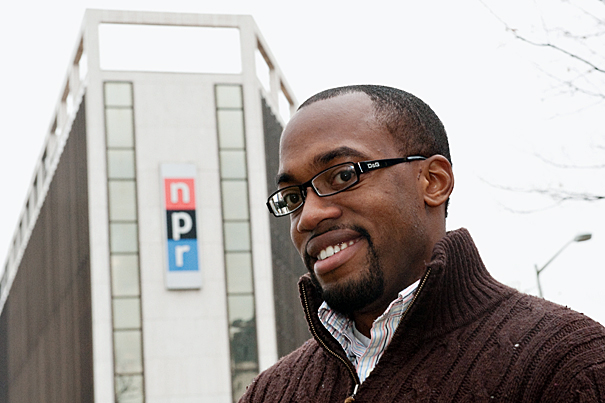
-
The Game
The oldest rivalry in college football dates to 1875, when Harvard and Yale played a bruising game that resembled rugby more than modern football. Back then, fans journeyed by train, horseback, and foot from around New England to view the rough-and-tumble spectacle.
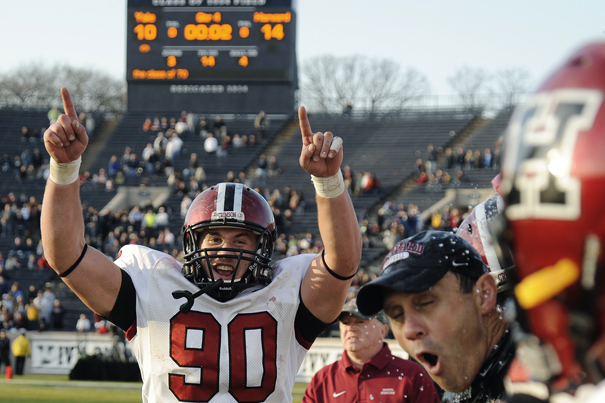
-
CfA shows schoolchildren the stars
The Harvard-Smithsonian Center for Astrophysics is giving middle school children in three Massachusetts towns a taste of astronomy, using robotic telescopes they control themselves to fuel their interest in careers in science, technology, engineering, and math.

